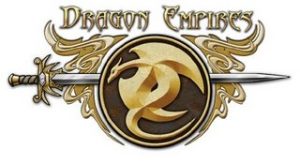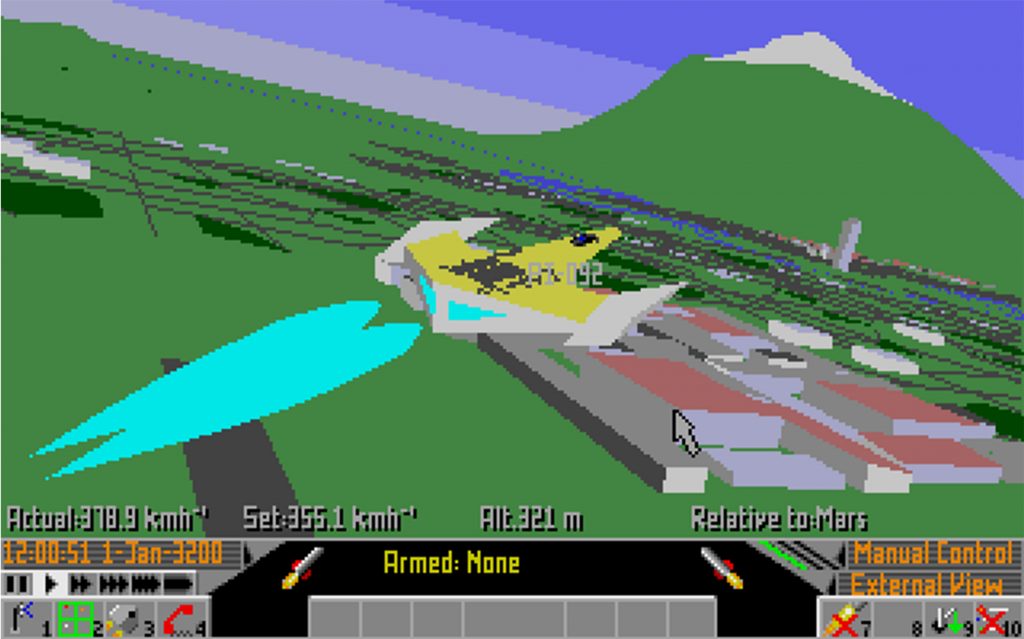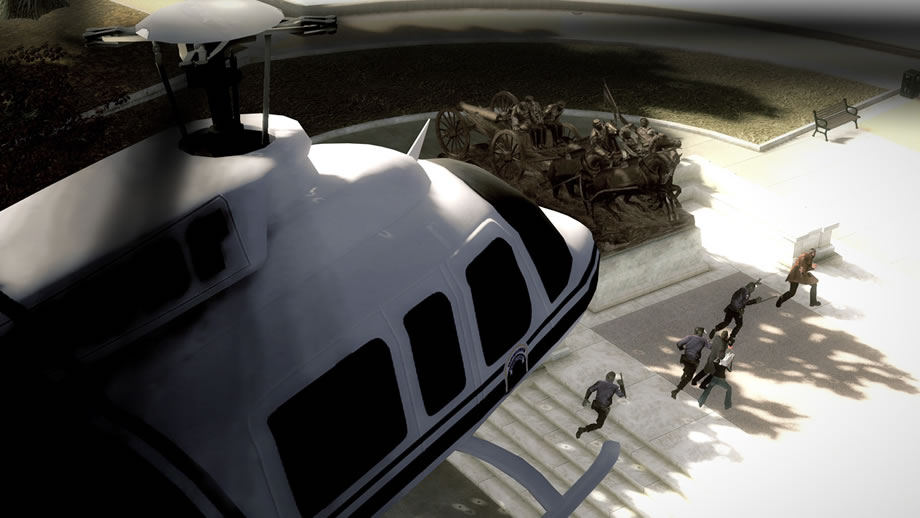 Dragon Empires is a canceled fantasy Massively Multiplayer Online Role-Playing Game published and developed by Codemasters, exclusively for PC, at least from 2001 until 2004.
Dragon Empires is a canceled fantasy Massively Multiplayer Online Role-Playing Game published and developed by Codemasters, exclusively for PC, at least from 2001 until 2004.
Dragon Empires was officially revealed in September 2001 as we can read on Gamezone:
Dragon Empires presents a world where magic is plentiful and the lives of humans and dragons intertwine. The world is made up of 100 lands spread over five empires, a world that can be ruled by player clans and a world whose strongholds are guarded and policed by fiercely protective dragons.
Dragon Empires is filled with embattled clans, each striving to prove their superiority in head-to-head group combat, as they aim to rule magnificent cities and, ultimately, empires. Dragon Empires breaks the mold by placing an emphasis on player-to-player combat and making it an integral part of the gaming experience. It is open season on all other players all the time, thereby enforcing the concept of player clans forming and ruling sprawling cities within the game’s world.
Although players start out on their own, as they become experienced they’ll be able to form their own clans and take control of entire cities or rule the seas between the lands and make profit and taxes from the land they rule. Cities can be owned by a clan or taken by force against other clans in real time wars and sieges. Combat is real time and engaging in an attack is as easy as walking up to a target and using spells or weapons on it. There are mechanisms to keep the world from turning into anarchy; with the basic rule being that, while a player can attack anyone, they risk becoming an outlaw if the attack is not warranted. Outlaws become an instant target and can be hunted down by other players or face the wrath of the city’s protectors – the dragons.
“Dragon Empires is a massive and important project as Codemasters continues to embrace new delivery platforms for gaming,” said Ted Carron, producer of Dragon Empires. “The always-on combative element is something we’re very excited about; the majority of existing MMORPGs are 99% co-operative and relatively slow paced – Dragon Empires is more intense and competitive, driving people into groups where the real benefit of online gaming lies. We’re confident no other MMORPG will provide the fiercely competitive balanced battles that Dragon Empires will create an arena for.”
For Dragon Empires, Codemasters is promising real progression in the world of MMORPGs and the game will be visually striking in a 3D real time rendered environment. The game is being developed at Codemasters’ online development facility in Oakhurst, California.
The English language version of Dragon Empires is scheduled to go online in Q2 2002 for PC gamers. The software will be launched as a boxed product with players subscribing on a monthly basis to play.
Using the Unreal Engine, the game was briefly showed during E3 2002 and was scheduled to go into beta in May 2003, as we can read on Gamespot:
In the latest of its newsletter updates on Dragon Empires, Codemasters has announced that the upcoming online role-playing game’s “period of planning has come to an end,” and that the game’s beta test will begin in May 2003, a bit later than was originally scheduled. The update attributes this delay to the addition of features that the game’s fan community requested, as well as graphical updates like improved textures and new character models.
In April 2003, Codemasters announced that the game will be present at E3 2003, alongside further details:
The game, slated for launch in Spring 2004, has already attracted a massive fan base, with more than 120,000 applications received for beta testing.
Dragon Empires delivers an online fantasy world that is both immersive and compelling, where thousands of players socialize, trade and fight individually or in clans, for control of the game’s 50 cities. At E3, Codemasters will highlight Dragon Empires’ stunning scenery, landscapes and buildings that form Fortitude, the game’s world of five unique mystical empires. Each empire is ruled by a mighty dragon whose personality shapes the individual look and feel of each empire and its respective cities. E3 will also mark the first showing of the game’s playable and non-playable characters. In Fortitude, the lives of humans, monsters and dragons have intertwined to form three playable races – the magical Humans, the heroic Dragonblood and the darker brood of Shadow.
In addition to these features, the game’s incredible climate engine, based on real weather models, will also play a prominent role throughout gameplay. With naturally evolving climactic effects, including lightning, rain, snow, blizzards, fog and rainbows, the climate model provides for naturally evolving environments across sandy deserts, hot plains, tropical forests and treacherous, ice-glistened mountains.
Players will be able to experience the world in third or first person. With the game’s draw distance at over a mile, it gives the player a feeling of seeing as far as the eye can see.
During E3 2003, the title was showed and RPGFan, alongside Loadedinc, wrote previews for the game. Thus, RPGFan wrote:
One of the more important gameplay aspects of an MMORPG is how player-vs-player (PvP) combat is handled. Each game in the genre has its own unique system and Dragon Empires is no exception. Bounty hunters, outlaws and contract traders are able to engage in inter-player combat, Civilians on the other hand, are free from all forms of player killing.
Bounty hunters will be free to attack any outlaw and will be rewarded if they successfully dispatch them. Players will begin as civilians and will need to get permits from non-player characters in cities in order to become bounty hunters. These slips have various durations and will likely be cancelled if the bounty hunter is killed. Bounty hunters who fail to complete their tasks become civilians and must renew their bounty-hunting permit.
Outlaws can attack any bounty hunter or trader for their contracted goods. There are many ways to become an outlaw, one of which is by murdering an empire’s venerated beast. These creatures are sacred to each empire and usually have their own treasure horde. Killing one of these creatures will result in becoming an outlaw of that empire and a bounty being placed on your head. Since each empire has different sacred beasts, players can hunt down these creatures, become filthy rich with their loot, and slither over the border to safely count their horde.
Traders will be free to defend themselves against any attacking outlaws to keep their contracted goods safe. Civilians can become traders by accepting contracts to transport goods between empires. These conditional “classes” will give different kinds of players the opportunity to participate in PvP and cooperative play on their own terms.
For its part, Loadedinc told us:
After the demo we asked Peter Tyson, Codemasters community manager, about the pushing back of the Beta and he said that the Beta had been delayed for various reasons including engine changes over the past few months. He did say that a very limited Beta will go live in June, perhaps 100 testers, and then more will roll out. Peter expects a long Beta period before the game is launched around May next year. Peter also stressed the importance of user feedback and Codemasters really want to take their time with this game to get things just right.
Peter was also rather excited about the game’s economy and trading model in which different cities are trying to undermine each other with a strong emphasis on manufacturing and trading. Players will be able to take resources from areas such as farms and mines to the cities where they can be sold for gold or just gain experience from trading. This means players are also open to attack from outlaws along trade routes making it a risky business. There’s also the ability to refine resources such as iron ore into iron and then manufacture swords, or alternatively you can sell that ore or give it to another player, who may be a trader, to move the resource around the game world. Once items such as swords are created they can be enhanced by adding other items to them such as a fiery ruby to create a fire sword. The game will feature automated production via manufacturing and also crafting of individual items to enhance them further. The game really is economy driven and it’s the one aspect of the game that should provide variety in the types of players and groups that populate the world. Peter expects clans to set themselves up as merchants and no doubt we’ll see groups of players moving goods around the world to drive that economy and city production.
While we didn’t get to see much of the actual gameplay this year, we did get a good look at the game engine and it was one of the most impressive engines powering an MMORPG at this year’s E3. The landscapes look gorgeous and the weather effects are nothing short of stunning making Dragon Empires a real stand-out title. Let’s hope next time we see the game we’ll be able to get deeper into the actual gameplay and player interaction.
However, after months of delay, Codemasters took the decision to cancel the project in September 2004, as Gamesindustry learned it:
British publisher Codemasters has announced that it has discontinued development on Dragon Empires, with the massively multiplayer RPG title being dropped due to “technical issues.”
The bulk of the development team on the game are being transferred to other parts of Codemasters’ operation, and no redundancies have been announced as a result of the cancellation.
Codemasters claims that it still has “long-term ambitions” in the massively multiplayer space, and says that the decision to cancel Dragon Empires is down to technical problems – with the company lauding the “incredible support” from the online community for the title to date.
On Gamezone, we could read further details:
Technical difficulties had been weighed and after deliberation it was decided that further development of Dragon Empires would be halted. It was a sad turn of events for the community, which had eagerly been looking forward to the title.
Gary Dunn, producer of the title, posted a message on the official Dragon Empires Web site, which stated: “We were experiencing unexpected obstacles with the server code, in particular our ability to serve clients at a scale which would have permitted us to launch the game as an MMO. The resolution of these issues was fundamental to the success of the project and ultimate release of the game. Due to the delays, a detailed analysis and review of the game was undertaken over the period of approximately six weeks in which a detailed study of the viability of the project was undertaken.”
After the cancellation of Dragon Empires, Codemasters devoted itself to publishing MMOGs by acquiring licenses from RF Online and Archlord in order to market them in the West. Both games didn’t meet the commercial expectations and Codemasters didn’t renew the licenses. The company then focused on the exploitation of American MMORPGs in Europe, notably signing with Turbine Inc. to market Dungeons and Dragons Online and The Lord of the Rings Online.
However, Codemasters gradually withdrew from the MMORPGs ‘ sector, by aiming to refocus on the development of racing games, in particular through several emblematic licenses such as the F1, Dirt, GRID and Project Cars series. The studio was acquired by Electronic Arts in February 2021.
Videos:
Images:




